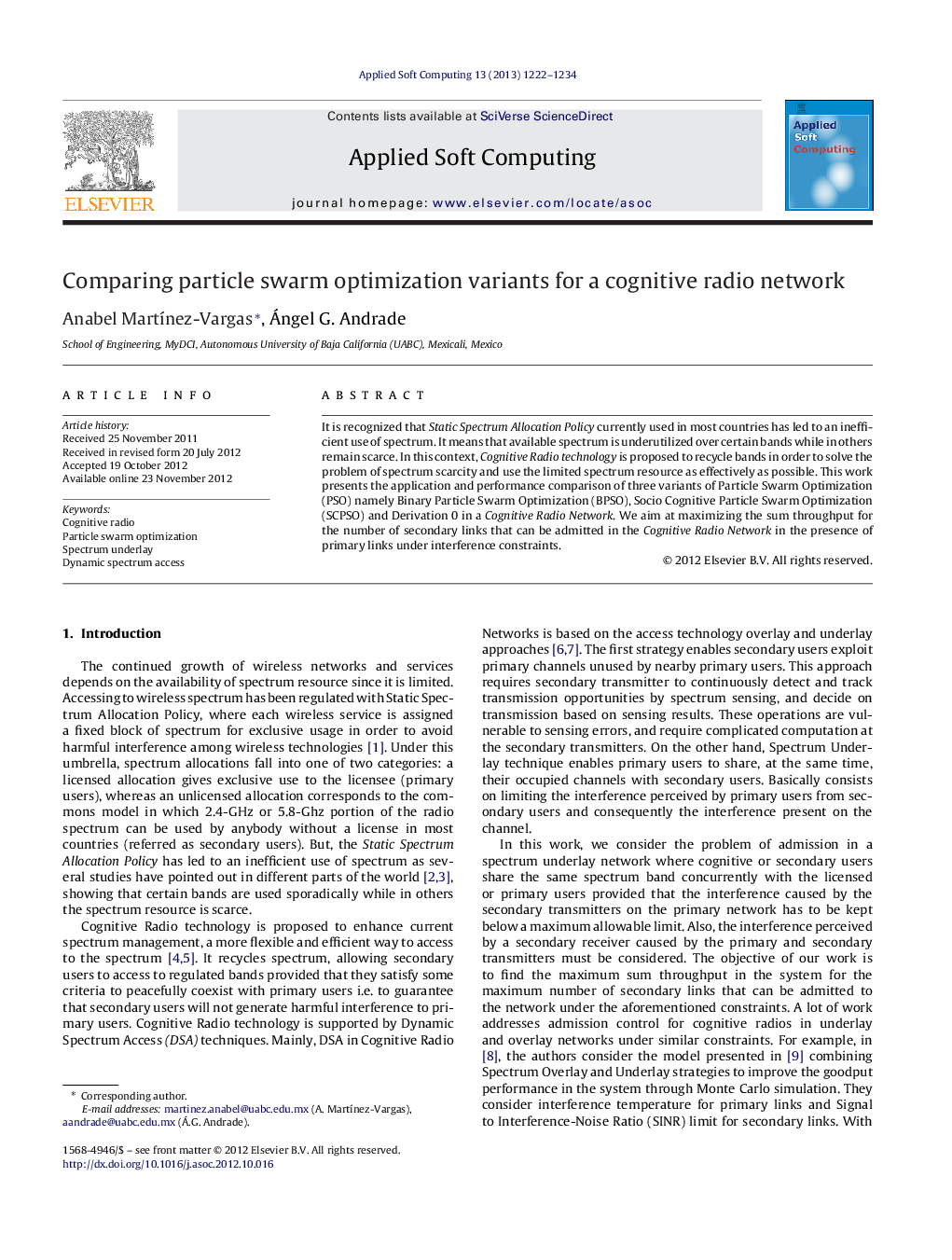| Article ID | Journal | Published Year | Pages | File Type |
|---|---|---|---|---|
| 496070 | Applied Soft Computing | 2013 | 13 Pages |
It is recognized that Static Spectrum Allocation Policy currently used in most countries has led to an inefficient use of spectrum. It means that available spectrum is underutilized over certain bands while in others remain scarce. In this context, Cognitive Radio technology is proposed to recycle bands in order to solve the problem of spectrum scarcity and use the limited spectrum resource as effectively as possible. This work presents the application and performance comparison of three variants of Particle Swarm Optimization (PSO) namely Binary Particle Swarm Optimization (BPSO), Socio Cognitive Particle Swarm Optimization (SCPSO) and Derivation 0 in a Cognitive Radio Network. We aim at maximizing the sum throughput for the number of secondary links that can be admitted in the Cognitive Radio Network in the presence of primary links under interference constraints.
Graphical abstractFigure optionsDownload full-size imageDownload as PowerPoint slideHighlight► Solution procedure based on particle swarm optimization algorithm. ► Convergence of best and average fitness for the variants of PSO using a fixed inertia weight w. ► Convergence of best and average fitness for the variants of PSO using a decreased inertia weight w. ► Variation of computational time for the variants of PSO using a fixed inertia weight. ► Variation of computational time for the variants of PSO using a decreased inertia weight w.
